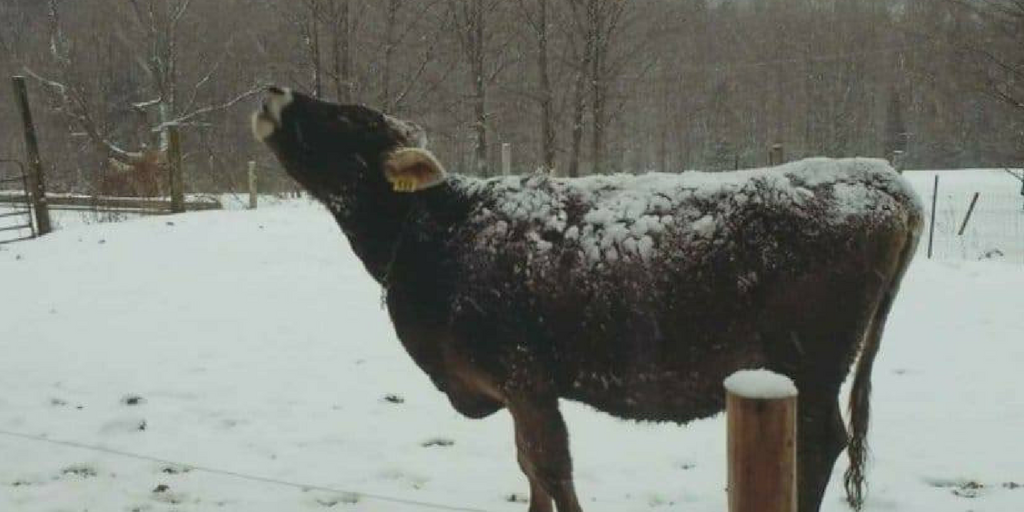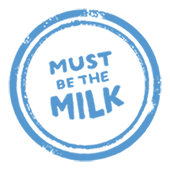
New England winters may have us all longing for the Caribbean, but for the region’s dairy cows, well, they’re real troopers when it comes to months of cold temps and falling snow.
The reason they can weather the weather (sorry, we couldn’t resist) is the ingenuity of dairy farmers. Take Mark Duffy of Great Brook Farm State Park in Carlisle, MA, who explains that while cold weather makes operating the farm more challenging, the cows think that the temps are refreshing.
Since cows like it cold, Duffy uses a “smart barn” with automatic inflatable walls to keep the temperature just above freezing. He explains the barn is remarkably warm since the cows themselves heat it with their body temperature. “They’re like giant furnaces.”
Thanks to their thick skin, hair and natural insulation, cows actually prefer temperatures between 40 and 65 degrees. As long as they’re well fed, healthy and have dry bedding, cows don’t mind the cold.
While the adult cows naturally handle cooler temperatures, farmers take extra precautions to keep the calves as warm and comfortable as possible. Dairy calves may reside in their own individual hutch or in a calf barn that is draft–free to block the wind and protect them from the snow. Keeping plenty of dry straw bedding is also crucial in keeping calves warm.
Many farms use calf jackets to help calves conserve heat. These are washable jackets that are fitted to go across the calf’s back and fasten around their back legs with a Velcro snap around their neck. This would be no different than people putting on their jackets before going outside! Dairy farmer Johanna Laggis, at Laggis Brothers Farm actually collects blankets from her home and local community and makes calf jackets herself! One of the jackets was made from a penguin fleece that kept her daughter warm when she was in the hospital as a baby. These calves are truly loved! Watch this awesome news story about Johanna’s special calf jackets!

A few other cold weather tidbits (thanks to our quick review of The Farm and Ranch Guide!):
- Dairy cows need water, or they won’t eat, which will affect the cow’s health and milk production. Cows can draw water at a rate of 3 to 5 gallons per minute, so the water supply and system needs to keep up with demand. Given New England winters, water can’t get too cold! The best temp? Between 40 degrees and 65 degrees F.
- Cows can get frostbite, just like humans, so dairy farmers pay close attention to windy, cold weather, and many protect the herd in the barn with insulated curtains and wind barriers.
- We all love a cozy warm bed (flannel sheets are a must for New Englanders!), so a herd benefits from plenty of good, dry bedding, since cows kept dry have a better chance of staying comfortable than those who stay wet during cold spells.
Want to learn more about our hardy dairy farmers and what they do to keep their cows toasty? Check out this great news spot about Greenbacker’s Brookfield Farm in Durham, Connecticut about working in the cold.
Cool stuff!

